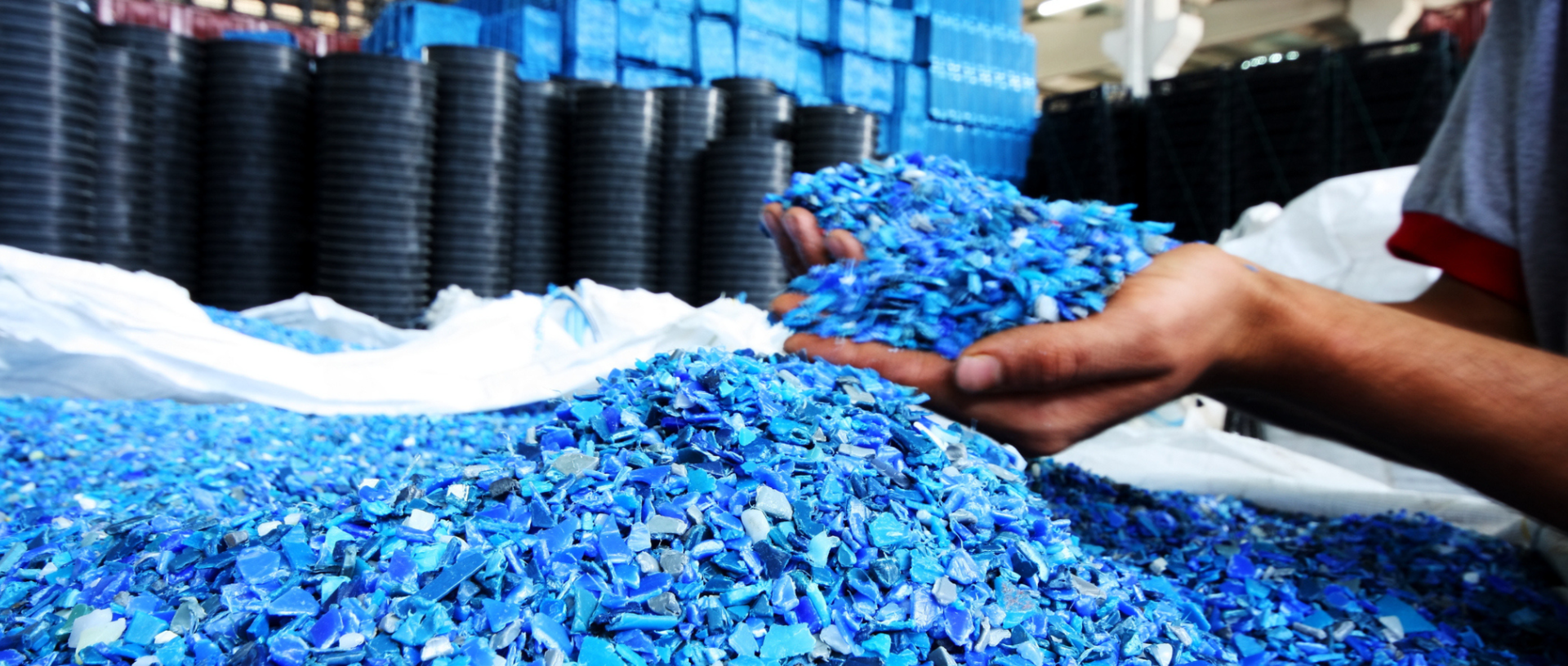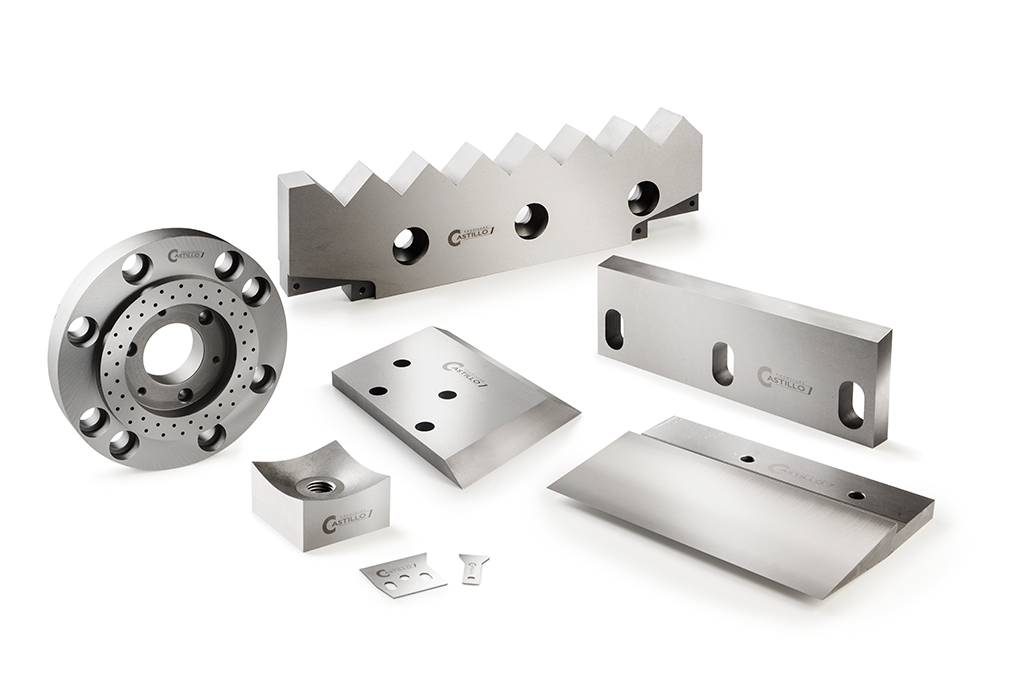Industrial blades have become a key tool in driving significant improvements in plastic recycling. Their evolution goes beyond just increasing efficiency or reducing costs; they represent a deep transformation in how plastic waste is managed. Thanks to advances in design and technology, recycling is now more precise and effective, directly impacting the industry’s ability to meet current demands.
This progress extends beyond process optimization, influencing the broader recycling industry by enabling the processing of more complex and durable plastic materials, paving the way for greater sustainability and operational efficiency.
The Role of Industrial Blades in Plastic Recycling
As plastic recycling continues to grow in both volume and complexity, industrial blades have taken a central role in improving the efficiency and precision of this process. Their ability to cut with greater accuracy, speed, and minimal waste has set new standards, highlighting their relevance in an ever-evolving sector. These advanced tools are driving a new era of cleaner, more efficient, and sustainable manufacturing, where technological innovation plays a key role.
Innovation in Precision and Performance
Industrial blades, used in machines like granulators, shredders, and pelletizers, are essential for plastic recycling. Thanks to their advanced design, they offer versatile and precise cutting solutions. Made from high-resistance materials like high-carbon steel and specialized alloys, these blades are ideal for transforming large volumes of plastic into manageable sizes and removing excess material with millimetric precision. Additionally, precisely sharpened edges and specialized coatings ensure clean, uniform cuts, accelerating the recycling process and reducing production interruptions.
Waste Minimization and Downtime Reduction
High-performance industrial blades not only maintain their sharpness under demanding work conditions, but they also reduce the need for frequent replacements, minimizing downtime. This contributes to continuous, efficient production and significantly reduces waste. While traditional blades lose their edge quickly, causing irregular cuts and large amounts of poorly processed material, advanced blades ensure clean, precise cuts with minimal material deformation. This durability not only reduces waste but also leads to significant cost savings and minimizes environmental impact.

Economic Advantages of Using Industrial Blades in Plastic Recycling
The use of industrial blades in plastic recycling not only represents a technological improvement but also a significant source of savings. These tools optimize every phase of recycling, from material reduction to its final transformation, allowing companies to increase productivity and reduce operating costs.
Savings on Maintenance and Replacement Costs
One of the key economic advantages of industrial blades is their durability. Made from high-resistance materials like high-carbon steel and specialized alloys, these blades retain their sharpness longer, enduring tough working conditions without frequent replacements. This significantly reduces maintenance expenses and extends equipment life, resulting in direct savings on operational costs.
Increased Production Efficiency
The superior performance of industrial blades enhances recycling efficiency by minimizing downtime and repairs. This continuous workflow maximizes production, enabling the processing of more plastic in less time with fewer resources. This improved efficiency translates into higher profit margins for companies operating in this sector.
Lower Energy Consumption
Compared to traditional cutting methods, industrial blades require less energy to operate, leading to substantial savings in energy costs. This optimization not only cuts operational expenses but also supports sustainability goals by reducing the carbon footprint of industrial operations. Companies achieve greater profitability while meeting the growing demand for environmentally responsible production.
Environmental Benefits of Using Industrial Blades in Plastic Recycling
The role of industrial blades in the sustainability of plastic recycling is fundamental, as they not only optimize the process but also help reduce the overall environmental impact. These tools efficiently process different types of plastics, aligning with global circular economy initiatives and more eco-friendly industrial practices.
Support for Recycling Initiatives
Industrial blades are essential components for transforming post-consumer and post-industrial plastic waste. Installed in granulators and shredders, they allow the integration of advanced solutions into existing processing lines, increasing recycling efficiency and quality. By converting plastic waste into reusable granules or pellets, these tools strengthen circular economy initiatives and facilitate the sustainable reuse of plastic materials.
Versatility in Handling Different Types of Plastics
One of the main advantages of industrial blades is their versatility. They can process a wide range of plastics, from monomaterial packaging to transparent plastics. This ability not only improves recyclability but also aligns with industry guidelines promoting the use of more easily reusable plastics, minimizing contamination associated with plastic waste.
Advances in Sustainable Solutions
As sustainability becomes a key objective in the industry, industrial blades are evolving to support more environmentally friendly practices. The development of new materials and coatings, such as diamond-like carbon (DLC) and titanium aluminum nitride (TiAlN), has significantly extended the lifespan of blades, reducing the need for frequent replacements and, consequently, waste generated from maintenance.
In addition, the adoption of recycled or bio-based materials in blade manufacturing further reduces the industry’s carbon footprint. These innovative technologies not only help companies meet the demand for high-quality recycled plastic products but also allow them to minimize their environmental impact while positioning themselves as leaders in sustainable practices.
Cuchillas Castillo: Tailored Solutions for Plastic Recycling
Choosing the right blade for a plastic recycling operation goes beyond selecting a sharp tool; it requires a deep understanding of the materials being processed and the specific challenges of each operation. Each type of plastic, whether delicate or highly resistant, demands a specialized solution. That’s why we focus on designing and providing industrial blades that optimize the performance of your equipment, ensuring precise and efficient cuts tailored to the unique needs of your recycling line.

Cuchillas Castillo offers its clients years of experience in the industry, providing customized solutions that improve efficiency, minimize downtime, and enhance the quality of the final product. Through our cutting-edge technologies and sustainability-focused approach, we help reduce operational costs, making your plastic recycling processes more profitable and competitive.

